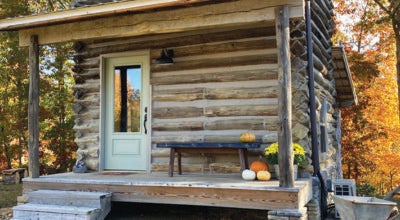The Literary Corner: Renegade Writer’s Guild
Published 9:23 am Thursday, August 5, 2021
|
Getting your Trinity Audio player ready...
|
My Love of Books
By Linda H. Barnette
When I was a young child, both of my parents read to me. I don’t remember the names of any of the books, but it appears that that was the beginning of my love affair with books.
One Sunday after church I was sitting on Daddy’s lap while he read my Sunday School booklet to me. We were all shocked when I started to read along with him. That was before I started in first grade.
My favorite part of the school day was the last few minutes of the day when our teacher would read to us. As I got older, about the fourth grade, I had moved on to the Nancy Drew books, and a boy in my class had the entire series of Hardy Boy books and was generous enough to share them with his classmates.
My parents encouraged my love of reading by purchasing books for Christmas and birthday gifts. One year they bought a set of classics, which included Tom Sawyer and Huck Finn. They also bought me a set of World Books from Mrs. Robinson, whose husband was the superintendent of schools then. Those encyclopedias helped me with my schoolwork for years.
As an only child, books were my constant companions. I always had several on my bedside table and read each night before going to sleep. I still do that.
One of my fondest memories came from the days when the library was located in the basement of the building next to the courthouse. Mrs. Blanche Hanes Clement was the librarian then, and she always encouraged me to read books that she suggested. One time she told me to go on and try reading War and Peace even though I was just 13. I wish I had told her how much her interest in me meant, but we don’t realize those things until it is usually too late.
It was natural that I chose to major in English when I went to Catawba. After all, I could read all the books I wanted to. Teaching literature was also great fun for many years. So I am most grateful to my parents for reading to me!
Early Settlers and ‘Jacks of All Trades’
By David R. Moore
Long before the Revolutionary War, people were drawn to North Carolina because it was easier to obtain land patents and the yearly rental taxes were less burdensome, as compared to land such as in Virginia. Most had a dream of making a better life. We would like to believe our early settlers were hard working, industrious, and ‘Jacks of All Trades’ to make or repair just about everything they needed to survive. However, within any society, the individual’s temperament and their personal economics played a role in how self-sufficient they really were.
Col. William Byrd, who performed an early survey of the eastern portion of the Virginia-North Carolina border, gave an interesting description of the people living on the North Carolina side. “The settlers had few or very small corn fields and they saw no tokens of husbandry or improvements. The only business was raising hogs, which was managed with the least trouble. The hogs rambled free and fended for themselves year round. The men imposed all the work upon the poor women who rise out their beds early in the morning, while they lie and snore till the sun had raised high. Then, after stretching and yawning for half an hour, they would light their pipes. They’d stand and gravely consider whether to take a hoe at their corn field, but generally found reason to put it off to another time.” Colonel Byrd pointed to the ‘truth’ that it was the thorough aversion to labor that made people file off to North Carolina, where plenty and warm climate confirm them in their disposition of laziness for their whole lives. Obviously, Colonel Byrd was not from North Carolina.
Fortunately, for us, many early settlers did have good work ethics and they were willing to take on various occupations to support their families. For example, John C. Smathers (born 1830), who lived in Turnpike, NC (just east of Asheville), had a wide range of occupations over his lifetime: rock and brick mason, painter, carpenter, tinner, shoemaker, plumber, harness and saddle maker, hunter, glazier, butcher, physician, farmer, bee raiser, poulterer, lawyer, rail-splitter, politician, school master, fruit grower, cook, hotel-keeper, stable man, and Bible scholar.
Although rarely acknowledged in early history books, women probably carried the heaviest burden. With large families, they rarely had time to call their own. Long before dawn, they were up getting the fire started, bringing in water from the spring, and getting the ‘kittle’ going. Chickens had to be fed, cow milked, children dressed, bread made, bacon fried, and coffee made.
With breakfast done, dishes washed, spinning wheel and loom needed attention, keeping eye on children, washing clothes, churning butter, sweeping, making lye, robbing bee hives, planting and tending the garden, and sewing. The women got no rest toward the end of day, as milking, making dinner, washing dishes, cleaning, darning and mending clothes all needed to be done and then starting over again the next day. So from my viewpoint, most early settlers did work hard to make a better life for themselves and their families, and both women and men had to be “Jacks of All Trades’.
Google Failed Me
By N.R. Tucker
To be fair, it’s not Google’s fault. Search engines provide a wonderful tool that allows me — and the rest of the internet connected world — to access data from a simple word search. Anything I want to know appears on my screen after I type a few words… mostly.
The other day something reminded me of a poem I read long ago. I remember exactly two lines from the poem. I went to Google and typed those two lines. I got zilch. I tried a couple of other search engines and various formats for the question. Again, zilch.
What’s a person to do? How did I find such information before search engines? If it was necessary for educational excellence or work success, I buckled down and did the research, which normally required quality time with a library catalog (and the accompanying index cards) and a knowledge of the Dewey Decimal System or a deep dive into the text of a corporate document or reference manual. If it wasn’t important, I asked a couple of friends and called it a day, content that I didn’t really need to know the name of the actor who died in the opening scene of the movie we just watched.
But today is different. When I desire a small piece of information, I expect, nay demand, that my search engine of choice provides that information. If it doesn’t, I type the question multiple ways until I get the answer. When that doesn’t work, I feel let down as I do now.
And that’s the funny part. My curiosity was merely a passing thought, and I wondered what the rest of the poem said. There was no urgent need for this information, but I’ve come to expect Google to have the answers to my whimsical thoughts. The poem was a funny little thing that (I believe) opened as follows:
“Don’t label as indifference, my splendid tolerance.
Nor say that I am prone to lie. I just enjoy some fiction.”
Alas, I cannot credit the author as I can’t remember anything else about this poem. I can’t even say where or when I heard it. So, I tip my hat to the author and shall wonder evermore… How does the rest of that poem go?





